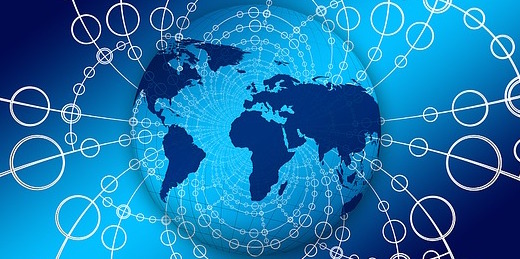The opinion piece titled “With Saudi on side, the Brics can change the world” appeared in theArabian Gulf Business Insight (AGBI) on 22nd August 2023.
With Saudi on side, the Brics can change the world
The 15th annual summit of the Brics economies begins today in South Africa.
The gathering reflects the massive shifts in economic geography since the term was coined more than two decades ago.
The Brics – Brazil, Russia, India, China and South Africa – represent about 26 percent of the world’s geographic area and about 42 percent of its population.
Their share of world GDP mushroomed from 18.2 percent in 2000 to 31.6 percent in 2022, surpassing the long-established G7.
A multipolar world has emerged. The fragmentation is being accelerated by the efforts of the US and its allies to resist this new reality by decoupling from China – which they term “de-risking”.
But the shift in economic power has not been reflected by a comparable shift in economic governance. The so-called Bretton Woods institutions – the International Monetary Fund, World Bank and World Trade Organisation, among others – are still dominated by the G7, which was born in the 1970s.
New institutions were needed. The Brics grouping was formed to give voice to major emerging economies on global developmental issues and enable multilateral co-operation outside the prevailing order.
The Brics group has the potential to be the architect and engineer of a different world order, if it can develop a shared vision.
Why should Saudi Arabia join the Brics?
There is a strong strategic case for Saudi Arabia to join the Brics group at this year’s summit – the first to be held in person since the pandemic – consistent with the kingdom’s Vision 2030 of modernisation, transformation and increased openness.
Saudi Arabia is already the largest trading partner of the Brics in the Middle East.
By joining the group, Riyadh can expand its trade with other emerging markets, support its diversification ambitions and deepen trade with the oil importers among its members. Greater economic integration will also attract foreign direct investment into Saudi Arabia.
Joining the Brics would give Riyadh a larger international presence and a louder voice in geo-economics and geopolitics, in addition to its G20 role.
A Brics+s would include two of the biggest energy producers in the world and the number one economy (China, when ranked by purchasing power parity). By 2050, if not by 2030, the Brics+s countries will dominate global economic activity.
What could an enlarged Brics group do?
To deepen its economic footprint, a Brics+s group should actively engage to develop intra-bloc trade, direct investment and financial flows. The establishment of the New Development Bank (NDB) in 2015 was a watershed.
Bangladesh, the UAE and Egypt are now NDB members, while Saudi Arabia is in talks to join.
As of July 2023, the “Brics bank” has only lent $33 billion to some 96 projects located in the five founder nations. Saudi membership would substantially strengthen the NDB’s financial footing.
Given the disproportionately greater impact of climate change on emerging nations, the NDB can aim to become a leader in sustainable finance – along with the Asian Infrastructure Investment Bank and the Islamic Development Bank.
To exercise their power, the Brics+s countries need a reformed international financial architecture and organisations (including the NDB), along with an efficient multi-currency payment system to facilitate trade and financial flows.
This multi-year effort will require broad, deep, liquid and linked financial markets, based on China – and eventually India – opening financial markets to international investors and removing exchange controls so the yuan can become a viable alternative to the US dollar.
In the meantime, bilateral trade finance can use national currencies. The petro-yuan can be used to finance trade between China and Saudi Arabia and other GCC countries.
Similarly, the Brics Pay system – for decentralised multi-currency digital international payments – will need to expand to include Saudi Arabia and other GCC countries. The Brics interbank cooperation mechanism will also have to link Saudi Arabia and GCC banks.
The Brics+s architecture will require a “Global Monetary Fund”, based in Beijing, which will be more representative of the new landscape.
Saudi Arabia joining Brics can transform the global economic and financial order.






